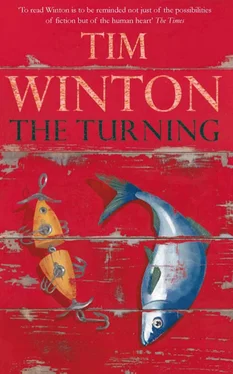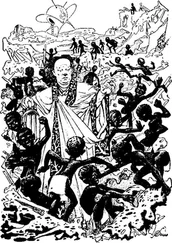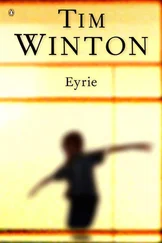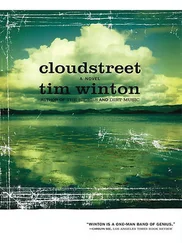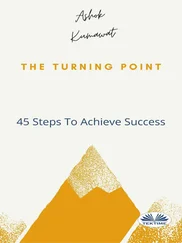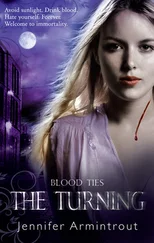Teaches phys ed. He saw me and just laughed.
You didn’t tell me about it.
It was kind of awkward. I mean I always liked him. I was glad to see him. God, I almost hugged the guy and congratulated him for being a big success.
You didn’t!
Just think of the odds. In our day, from that town. The others’ll be dead or in jail. Making it to forty’s an achievement. But, no, I didn’t do anything stupid. Still, I wanted to catch up with him, buy him a drink, but I fudged it. It suddenly got too. . complicated.
Complicated? Gail asked. What’re you saying?
Vic felt her looking his way now. She had the wrong idea but he had no confidence in his ability to explain himself. His face began to tingle with a hint of neuralgia. He sank back and closed his eyes a moment.
They came into the jarrah forest, a wall of grey on either side of the road, and the air was cool and sharp with eucalyptus.
You should go back there some time, said Gail after a long silence.
The Pilbara?
No, the old town. You should deal with these things. God, last year I was down there every month.
The old town, he said bitterly.
Well, you were like a zombie.
My parents died.
Sure. But it was more than that. You know it.
Just small-town shit, Gail.
Which you haven’t dealt with.
He sighed and looked at her long arms draped on the wheel, the hair licking back over her ears in the slipstream.
You should have come with me, she said fiercely. You should have.
For your sake?
Both our sakes. You’re stuck, Vic. You won’t admit it but you are. Which, in case you hadn’t noticed, leaves me stuck alongside you.
Stuck with me, you mean.
That’s not what I said, she murmured. You’re like someone under siege. And I know it’s all these sudden memories. But are they coming because you’ve been sick, or are you sick from remembering? Like you’ve held it out too long.
You’re a fundraiser, not a therapist.
Well, pretty soon you might need both!
What does that mean, Gail?
Do you realize that every vivid experience in your life comes from your adolescence? You should hear yourself talk. You’re trapped in it. Nothing you do now holds your attention like the past. Not me, not even your work, these days. I feel like I’m getting less real to you by the day, that I’m just part of some long, faded epilogue to your real life. Last year I put up with it. It was lonely, Vic, but now it’s worse. Shingles, twice in two months. That’s a physical breakdown. How long before you cave in altogether?
She drove. He licked his chapped lips. Each of them sensed the uneasy crossing of a boundary. There was relief in it — they’d been like two people holding their breath so long, but they were fearful of where this might lead.
Why are we going away this weekend? he asked.
A change of scene.
A change of company?
That too, she said with a sigh.
You’ve started going to church again.
How’d you know?
I found a pew sheet.
Well, last year I went whale watching. This year I thought I’d try the Anglicans.
I’m not sure that’s an evolutionary progression.
I don’t think you’re in a position to talk about progress, Vic.
I thought you’d never go back to all that nonsense.
Well, it’s not quite the same brand of nonsense. And I’m sorry you’re threatened by it.
Vic took a breath but said nothing. He put a hand to the welter of scabs on his face. He could feel the others itching at his scalp and eyelid but he resisted the impulse to claw at them. The neuralgia was well and truly back. The deep, prickling heat was, he now understood, a warning sign. He took his hand away and looked at his wife. She was crying, blinking furiously, tears streaking back across her temples in the wind.
Sorry, he said.
Doesn’t matter.
I’m being a dickhead.
I have to pull over.
Gail braked and eased them onto a wedge of pink gravel. She switched the engine off and snatched up a tissue from the box on the dash. She looked away but she sensed him slumped beside her.
Last year, she said. Those weekends in Angelus. I had an affair.
Ah. Right.
It was stupid, and wrong. I didn’t plan it. Lasted a few weeks. I’m so sorry.
That’s why I should have come?
No. Well, part of me thinks so, but I know that’s not fair.
Well, Jesus.
Gail gripped the wheel until her hands burned. She hadn’t meant to tell him yet and not nearly as bluntly. For someone in his condition the timing was about as bad as she could have managed. She’d wanted to tell him so she’d be free of it, not to spit it up in a moment of anger.
He opened the door and got out. The forest sighed. There was a mineral whiff of gravel. For a moment she thought of him bolting out into the blur of trees and leaving her there by the roadside. Could it be that she wanted it? A scene? An end, even?
But he went no further than the drainage ditch, round-shouldered, hands in pockets, blowing like a man who’d already run a good distance.
When they bounced up the long winding drive and came to the house, Fenn was out on the grass with the hose and the kids were in an old cattle trough, squealing as he sprayed them down. Capering about in his floral boardshorts, the ginger beard dripping, that chest hair plastered awry, Fenn looked so huge and ungainly, so unselfconscious in his foolery, that Gail and Vic exchanged glances and smiled despite themselves.
God, she said. Look at that.
Daisy came down off the verandah. She was barefoot and her cotton dress only contained her breasts intermittently.
Don’t mind my husband, she said pulling open the driver’s-side door. His idea of farming is to water the children.
We were just admiring his movements, said Gail.
Ever seen such a physique?
Like a Greek god, said Gail.
How are you, Daisy? said Vic.
Better than you two by the looks of things.
How do things look, then? he said.
That poor face of yours? Like she dragged you behind the car the first fifty miles.
What about my face, Daise? asked Gail.
Like you drove the second fifty miles feeling guilty about it.
Vic and Gail caught each other’s eye a second time. Daisy saw it. He realized then that Fenn and Daisy were already privy to Gail’s secret.
C’mon, said Daisy. Or do I have to haul you both out?
Daisy made an enormous pot of tea and set down a tray of anzacs by the window from which they could keep an eye on the children. Fenn weighed a biscuit on his upturned palm and raised his impossible eyebrows.
Anzac, he said. Now there’s a biscuit with the ballast of history.
They’re perfectly good biscuits, said Gail. She’s getting good at them.
And even if I’m not, said Daisy, he still eats them. Behold, Vic, the weight of loyalty.
Yeah, said Fenn, slapping his belly. The waist of loyalty.
Daisy and Fenn were both vets. They’d sold a thriving suburban practice to come here. Daisy had grown up on the place and took it on when her father grew too frail to keep up with the orchards. Vic looked out at the hard noon light on the hills and the almost shadowless lines of trees and he wondered how Fenn and Daisy would manage here. Fenn was alarmingly impractical. Animals and children loved him but he knew nothing about horticulture or even simple gardening. Daisy, who’d been away from the place since she was seventeen, had plans for an organic operation and maybe biodynamic poultry as well, but they seemed out of reach at present. There had been hidden debts, unforeseen expenses. Vic thought there was something manic about Fenn and Daisy’s optimism. At times they struck him as just plain careless with their energies. Still, he admired them for striking out in a new direction, for having dreams. They were barely ten years his junior. So why did they seem so fresh?
Читать дальше
